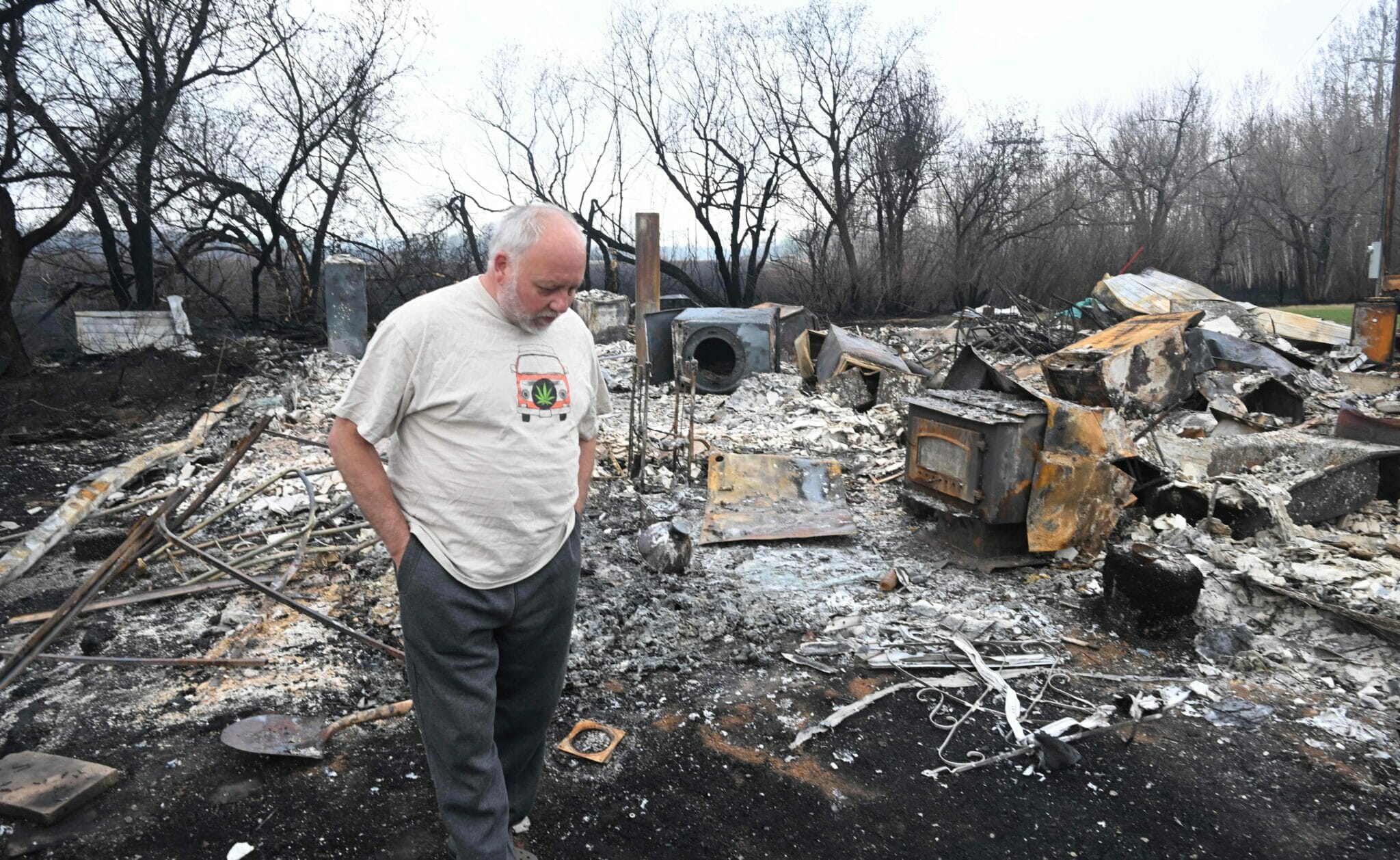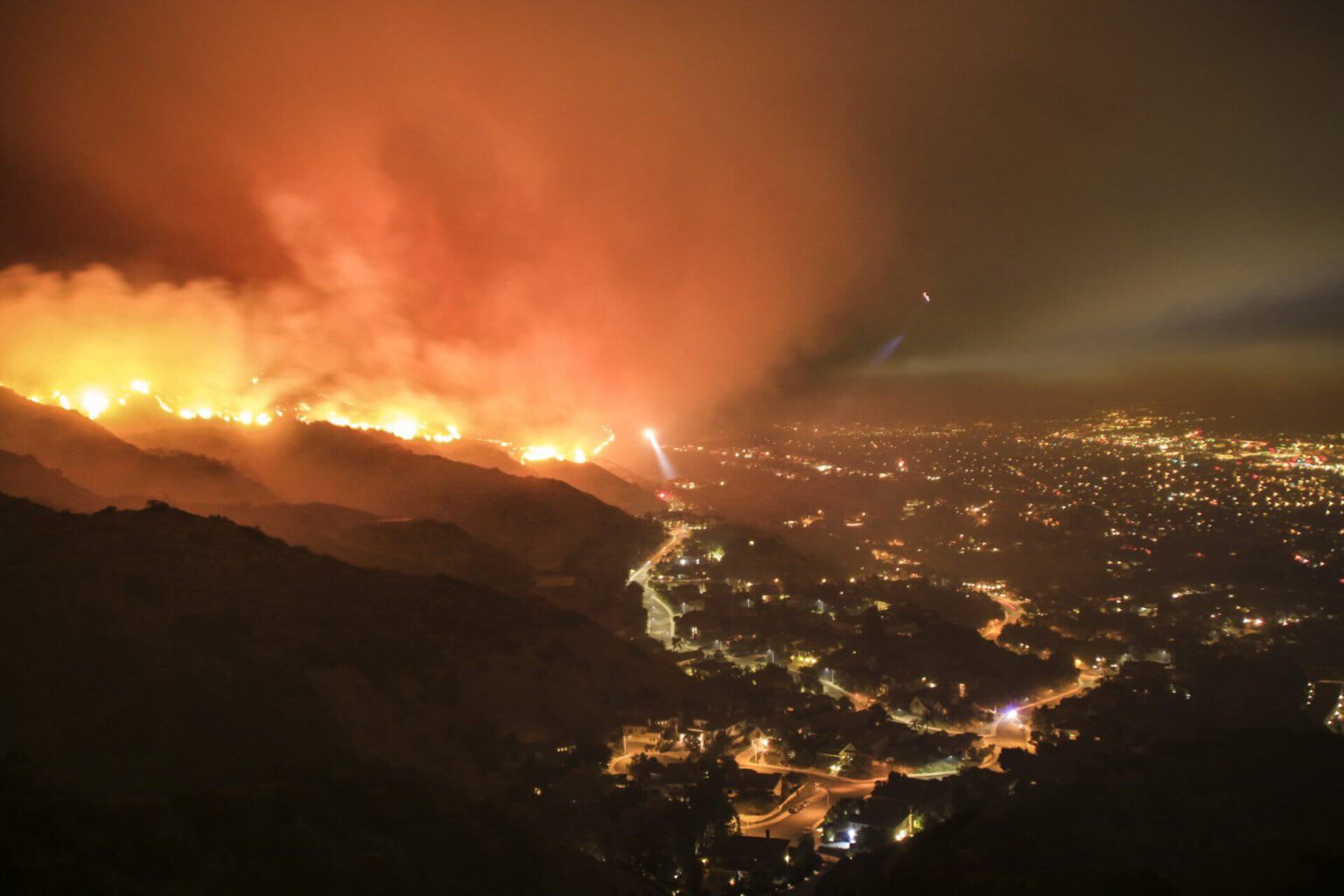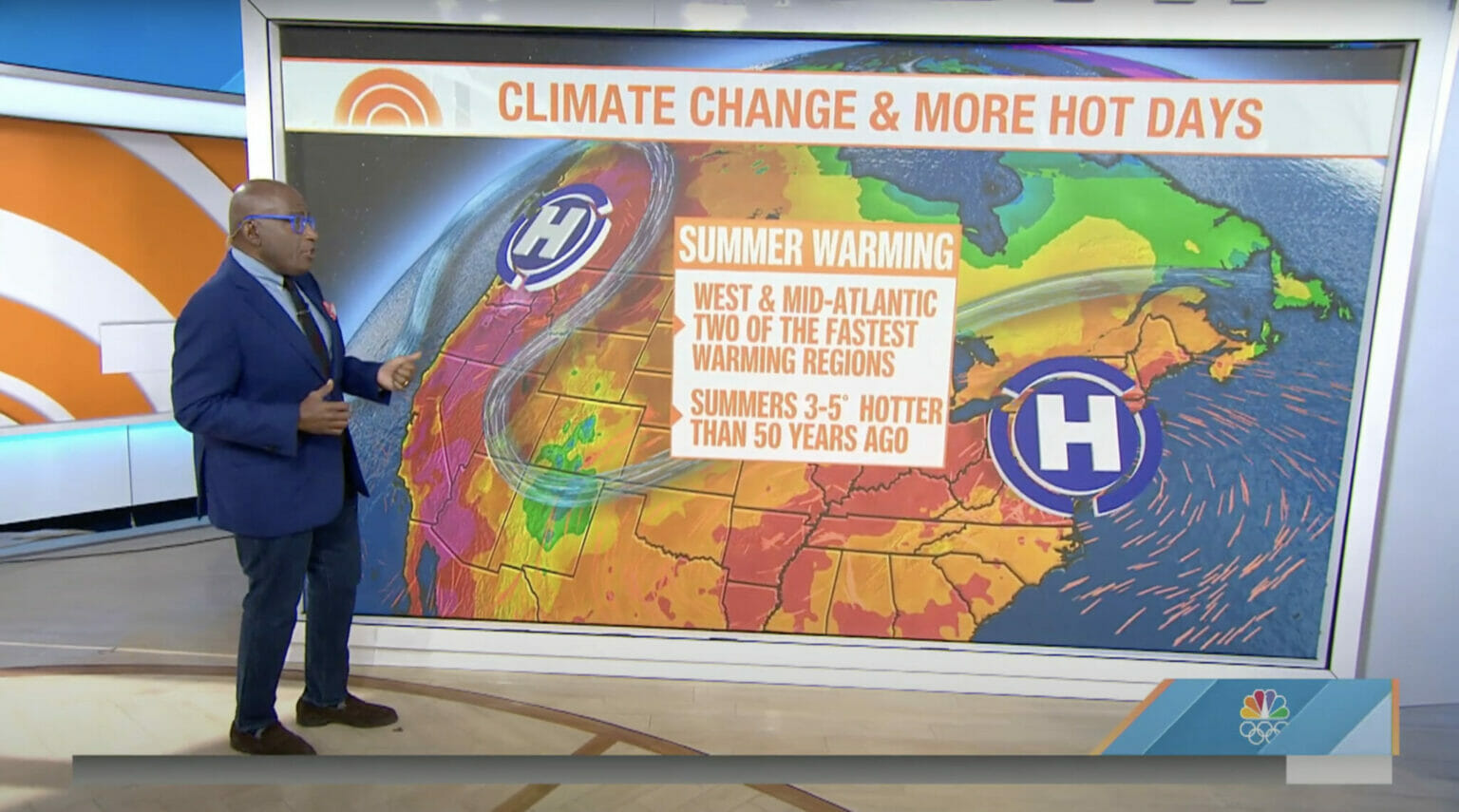Sign up to receive our weekly newsletter
Heat is making news this week in more ways than one. The World Meteorological Organization announced on Wednesday that Earth will likely breach the 1.5 degrees Celsius temperature target by 2027, if only briefly, although scientists emphasized that rapid emissions cuts can still make that overshoot temporary. Meanwhile, as if to underscore the urgency of such cuts, more and more of the planet is enduring scorching heat and wildfires.
As journalists report these developments, it’s crucial to inform audiences that climate change is driving this record heat and fire — and that the suffering and destruction will only get worse until countries everywhere stop burning oil, gas, and coal. That’s a point worth including, and questioning world leaders about, when reporting on this weekend’s G7 meeting in Japan.
CNN’s Rachel Ramirez made that connection powerfully in a piece this week about the extreme wildfires in Alberta, Canada, and a new study by the Union of Concerned Scientists. The study found that over a third of the area burned by wildfires in the Western US and Canada since 1986 is the result of emissions from 88 fossil fuel and cement companies. The UN has been sounding the alarm about this connection, warning last year that the risk of devastating wildfires will continue to grow as “the heating of the planet is turning landscapes into tinderboxes.”
A recent World Weather Attribution study finds that the extreme heat last month in Spain, Portugal, Morocco, and Algeria would have been “almost impossible without climate change.” Another concluded that April’s extreme humid heat in Bangladesh, India, Thailand, and Laos was at least 30 times more likely and at least 2 degrees C hotter due to climate change. Scientists are only getting faster at identifying the fingerprints of climate change on a given extreme weather event. But even without a study, journalists can make the climate connection to extreme weather and wildfires. (Our newly updated “Making the Climate Connection” guide offers sample language and examples to help you ensure your story is complete.)
Five G7 countries make the top 10 list of history’s largest contributors to cumulative historic emissions: the US, which still far outpaces China’s rapidly increasing emissions, joined by Germany, the UK, Japan, and Canada. Yet both the US and Germany will reportedly press other G7 countries at this weekend’s summit to burn more gas, including “liquid natural gas,” which is particularly climate-polluting.
At this point in the climate emergency, developing more fossil fuel runs counter to both climate justice and rich countries’ own interest. Poor people will suffer most from the resulting extreme weather, but the rich will suffer as well. Meanwhile, rich countries continue to dodge their legal obligation to provide $100 billion a year in climate aid to poor countries. A new Oxfam study calculates that G7 countries owe low- and middle-income countries $13.3 trillion in unpaid climate funding.
This is what a world on fire looks like. Humanity has the tools we need to turn down the heat. One of those tools is rigorous, plain-spoken journalism that makes clear both the stakes and the solutions.
From Us
CCNow Q&A. We spoke with Rosemary and Tom O’Hara, the exiting founders of the Florida op-ed collaborative The Invading Sea, about the virtues of collaboration in a precarious media industry, the climate conversation in Florida, and the climate subjects that resonate most with readers. Read it at CJR.
We’re hiring! CCNow is looking for two engagement managers to maintain and grow our relationships with partner media outlets, as well as a project coordinator to organize the day-to-day operations of Covering Climate Now. Apply by May 31. Learn more.
Noteworthy Stories
Revolving door. Over 80% of board members at the six biggest US banks have ties to polluting companies — in fossil fuels, banking, lobbying, and more — according to an analysis by DeSmog. While the banks all have “net zero” goals, they have provided $1.7 trillion in fossil fuel funding since 2015. By Rachel Sherrington at DeSmog…
Reduce. Reuse. Recycle. Plastic pollution could be cut 80% by 2040, according to the UN Environment Programme, by getting rid of unnecessary packaging and increasing plastic reuse and recycling. Between now and 2040, the world could reap trillions of dollars in health, climate, and environmental benefits by phasing down plastics. By Damian Carrington at the Guardian…
Protectors at risk. Amazon forest defenders in Brazil are urging the government to protect them against powerful, violent adversaries, including illegal loggers and land grabbers. SUMAÚMA visited six families of rights defenders in Pará who lack medical care, live in poor sanitary conditions, and are in constant fear. By Catarina Barbosa, Talita Bedinelli, and Alessandro Falco at SUMAÚMA…
Slowing action. A new law in the US state of Montana prohibits state agencies from considering carbon emissions and climate impacts in the permitting process for big projects, including for coal mines and power plants. A number of other Republican states have passed, or are considering, anti-climate legislation. By Kristoffer Tigue at Inside Climate News…
Divestment demands. Universities are facing pressure from students and faculty members to disinvest from fossil fuels over climate change concerns. Activists are urging the University of Texas at Austin, which received $2.2 billion in oil royalties last year from university-owned land, to divest. By David Schechter, Chance Horner, Aparna Zalani at CBS News…
Via Twitter
Bjorn Lomborg, a Danish statistician, has spent over 20 years proclaiming that climate change is much ado about little. A dismaying number of news outlets have lent credibility to his cherry-picked arguments. Now he has a new book out, but journalists don’t have to fall for it. In the following Twitter thread, NASA climate scientist Gavin Schmidt dissects Lomborg’s long history of climate misinformation and explains why his message nevertheless appeals to some people, especially those who’d rather not phase out fossil fuels.
A quick 🧵 on Lomborg etc.
I was once asked by someone prominent in the tech/internet area whether there was anything to the his critiques of climate change mitigation. I said no, but I could tell he really wanted me to say yes. Lomborg’s shtick is definitely appealing. But why?
— Gavin Schmidt (@ClimateOfGavin) May 14, 2023
Resources and Events
“Fossil fuel racism.” A new paper published in the journal “Energy Research & Social Science” concludes that fossil fuels “lie at the heart of the interconnected crises we face, including climate change, racial injustice, and public health.” Read it.
Climate migration. Earth Journalism Network’s new guide “People on the Move” offers tips for covering topics related to migration, mobility, and displacement in the context of climate change. Take me to the guide.
Toxic waste. The Society of Environmental Journalists has a new tip sheet on how extreme weather can make toxic waste even more hazardous. Check it out.
COP28. The Allied for Climate Transformation by 2025 will hold a webinar with policymakers and advocates: “COP28 and beyond: how to meet the needs of climate-vulnerable countries.” May 25. RSVP.
Climate adaptation. Clean Energy Wire will hold an event about reporting on climate adaptation, including approaches, reliable sources, pitfalls to avoid, and potential story ideas. May 31. RSVP.
Food. Sentient Media will hold a webinar on how to improve media coverage of food and its connection to climate change. June 1. RSVP.
Jobs, etc.
Jobs. The Boston Globe is recruiting a climate reporter. WJXT-TV in Jacksonville, Fla., is looking for a weekend morning meteorologist/environmental reporter. KDVR/KWGN-TV in Denver, Colo., is hiring a weekend morning meteorologist/morning reporter.
Pitches. High Country News is looking for pitches for their special climate issue.
Fellowship. International Journalists’ Programmes is offering climate and energy reporting fellowships to journalists from several European countries.


